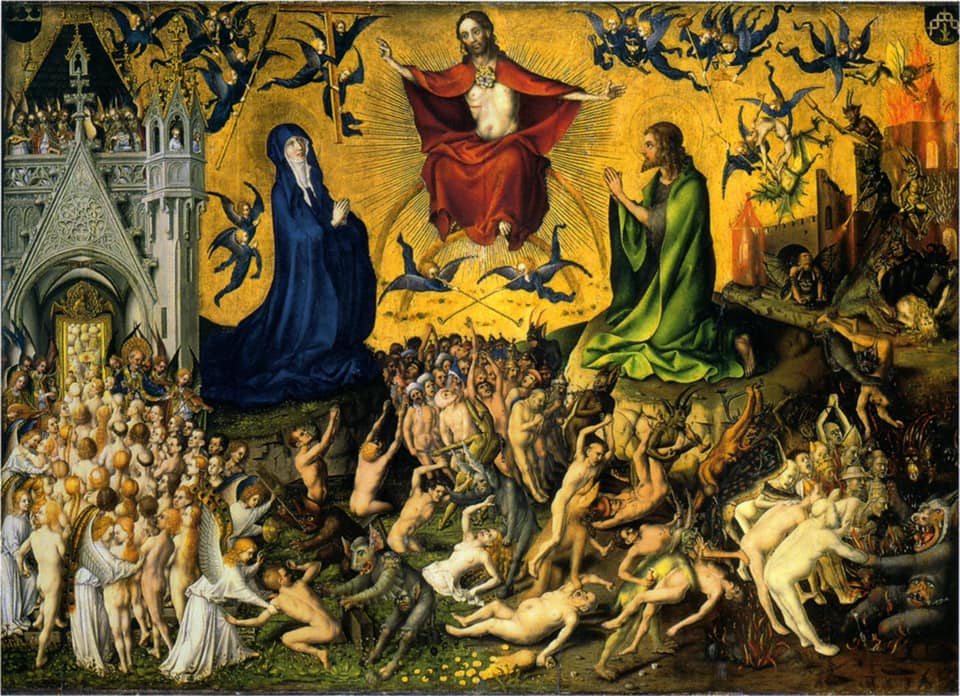 Gospel of 28 July 2020
Gospel of 28 July 2020
Tuesday of the Seventeenth Week in Ordinary Time
Matthew 13:36-43
As the darnel is gathered up and burnt, so it will be at the end of time
Leaving the crowds, Jesus went to the house; and his disciples came to him and said, ‘Explain the parable about the darnel in the field to us.’ He said in reply, ‘The sower of the good seed is the Son of Man. The field is the world; the good seed is the subjects of the kingdom; the darnel, the subjects of the evil one; the enemy who sowed them, the devil; the harvest is the end of the world; the reapers are the angels. Well then, just as the darnel is gathered up and burnt in the fire, so it will be at the end of time. The Son of Man will send his angels and they will gather out of his kingdom all things that provoke offences and all who do evil, and throw them into the blazing furnace, where there will be weeping and grinding of teeth. Then the virtuous will shine like the sun in the kingdom of their Father. Listen, anyone who has ears!’
Reflexion
John Lennon's 1971 song "Imagine" encouraged a generation to imagine there is no heaven or hell and to instead embrace “living for today.” It is no wonder that it has become a sort of anthem for the current “woke” generation, a generation that thinks it is more conscientised, more enlightened, more progressive than any generation before this. This is the reason why they believe that they are most deserving, the most entitled and the most qualified generation to fix the world.
It is quite common today to hear that the gospel is not really about the afterlife. According to this claim, the gospel answers much bigger questions than a person's eternal state. It's about life today—not so much about tomorrow.
And slowly but surely, we have begun to let slip Christ’s promise of divine judgment that appears in the Apostles' Creed—"He will come again to judge the living and the dead”. Many Christians talk a lot about justice but very little about judgment. Justice here and now is a popular subject. Judgment there and then? Not so much.
But justice and judgment are two sides of the same coin. You cannot have perfect justice without judgment. God cannot make things right without declaring certain things wrong. It's the judgment of God that leads to a perfectly just world. Try to take one without the other, and you lose the Good News.
That is why the parable of the wheat and the darnel seeks to make this fundamental correction. People who merely focus on justice here and now would often grow impatient and angry with the messiness they see around them. Impatience leads to despair. There will the constant temptation to right every wrong, root out every evil, find a solution to every problem, and instead of making progress, they often end up creating more trouble.
The ending of the parable and our Lord’s allegorical interpretation which we have just heard in today’s gospel passage, remind us that though we may not experience perfect justice here and now, we will encounter God’s justice in the end and His just and perfect judgment is assured.
To imagine a world without heaven and hell would indeed be a nightmare. It would mean that we would have to resolve every single issue in the here and now, and since this is impossible, life would be infinitely unjust and a living hell. It is only with the certainty that there would be a heaven for the righteous and a hell for the wicked that we are freed from having to take justice into our hands, which may eventually lead to our own damnation.
So if someone were to tell me to imagine a world without heaven and hell I would tell them, imagine a world without justice, a world without peace, a world without love, because it would be a world without accountability. If the world needs fixing, the only way is to begin with ourselves, through repentance and the grace of God.
